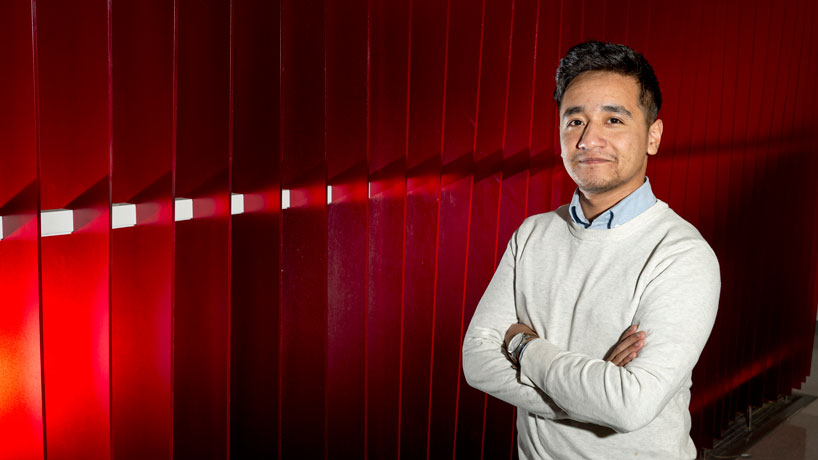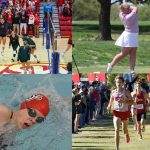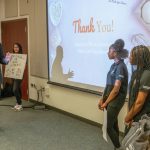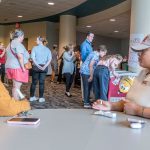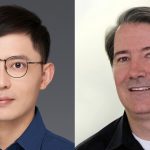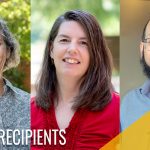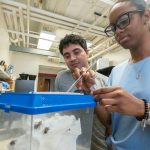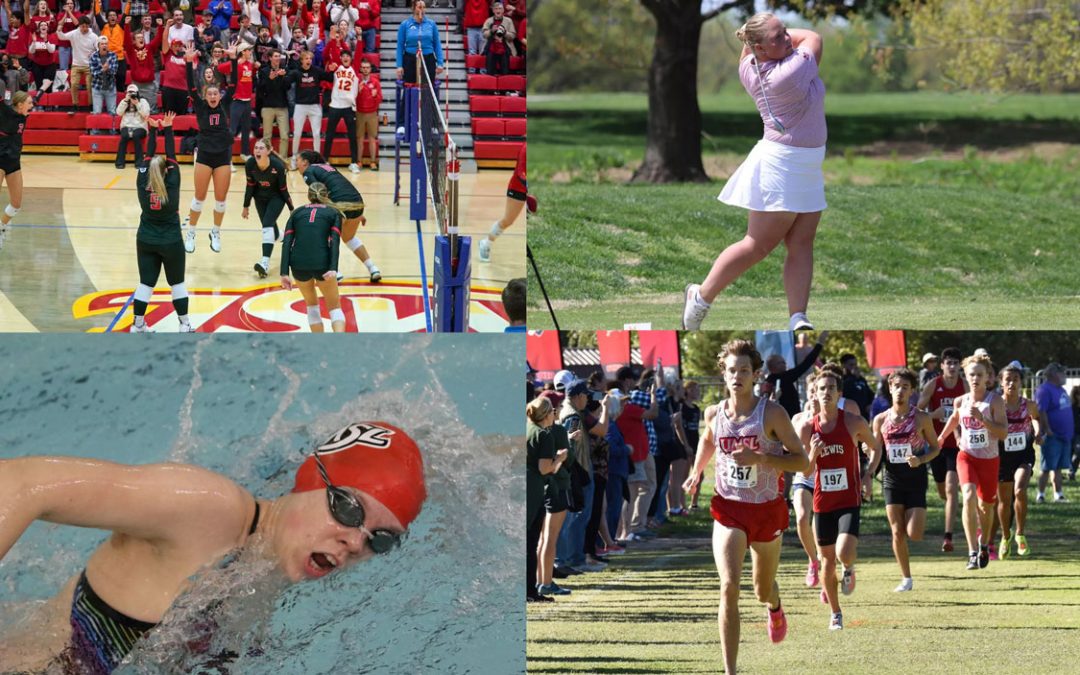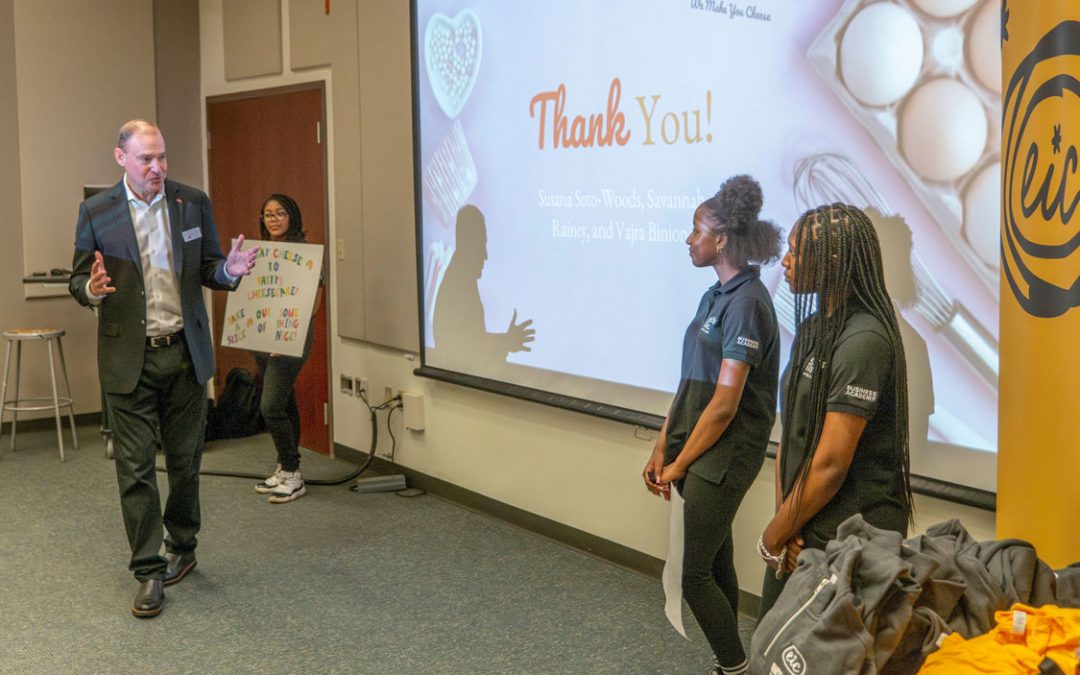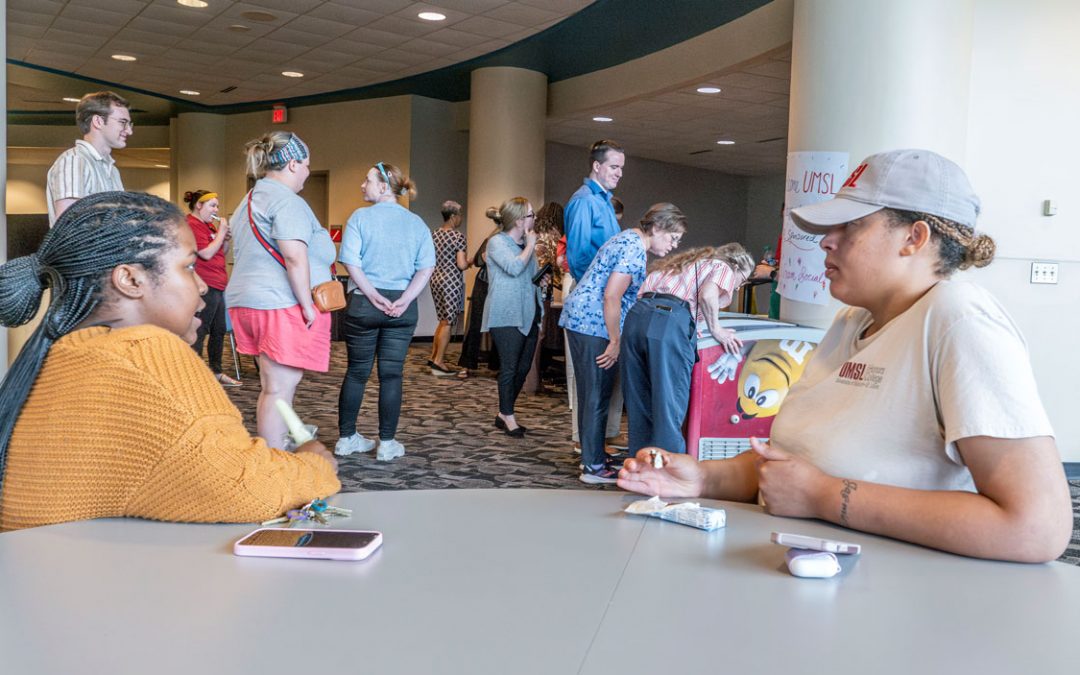The past 4½ years seem to have passed very quickly for new University of Missouri–St. Louis physics graduate Saksham Prajapati, even with the world grinding to a halt only about eight months after his arrival in the United States from Nepal.
The COVID-19 pandemic certainly had a profound impact on Prajapati’s college experience, leaving him isolated in a foreign country, forcing him into online courses, limiting his opportunities to engage with fellow students and preventing him from being able to visit home for more than two years.
But Prajapati endured and did his best to make up for anything he might have missed over his final five semesters, getting involved in the Physics Club and serving as its representative in the Student Government Association. He also spent an unforgettable summer in Washington, D.C., as a public engagement intern for the American Physical Society. This semester, he completed work for his bachelor’s degree in physics with a minor in computer science, graduating cum laude with distinction for his undergraduate research alongside Professor Erika Gibb.
“It has been really great,” Prajapati said. “Two years were taken by COVID. Just the last couple of years, I could experience what a university life looks like over here, but it has been worth it.”
Prajapati knew it was never going to be easy, moving halfway around the world to a place where he knew no one and would have to adapt to a completely different culture.
But he also knew he didn’t have much choice if he wanted to maximize his opportunity to study physics as had been his goal for several years.
“I wanted to study physics because I was curious about how things work, and in Nepal it’s not common to choose a subject like this as a young student,” he said. “I couldn’t find a proper school, so I decided to go to the United States for my undergrad studies.”
Prajapati’s fascination with the physical world was piqued by an experience he had in seventh grade, when his science teacher posed a perplexing question to the class.
“He asked, ‘Can you see the past right now?’” Prajapati said.
He remembered being confused like the rest of his classmates until the teacher finally answered his own question – an answer that filled Prajapati with wonder.
“He said, ‘There is one thing you can see from the past right now,’ and he pointed to the sun,” Prajapati said.
The teacher explained that the light from the sun takes about eight minutes to reach the Earth, so what the students’ eyes observed happened moments earlier.
That started Prajapati down a path to better understand the world around him, and he started exploring space and the solar system, eventually beginning to learn about relativity. By 11th and 12th grades, he’d made science an academic focus, including physics, chemistry, mathematics and computers.
“I was intrigued that you could describe the motion of something with math,” he said. “It was really amazing. It really taught me how mathematics was basis to all the physical world, and that increased my curiosity to pursue physics for my further studies.”
He did his own research to find universities in the United States where he might pursue his bachelor’s degree in astrophysics and discovered UMSL.
At the time, he thought he could benefit from UMSL’s involvement in the Missouri Space Grant Consortium, part of NASA’s National Space Grant College and Fellowship Project. It was only later that he learned he wasn’t eligible as an international student.
But he still found plenty of opportunities in the Department of Mathematics, Physics, Astronomy and Statistics, including doing research in Gibb’s lab. Prajapati started his undergraduate research shortly before the start of the pandemic and has continued after that interruption.
Under Gibb’s direction, he has been investigating the chemical composition of comets using an infrared telescope owned by NASA in Hawaii that can be controlled remotely.
“We create multiple proposals every semester, and so this semester, we had four different comet observations from that telescope,” Prajapati said. “With that, every semester, we gather data from the telescope, and then next semester, we start working on the data analysis. It’s basically characterizing the types of comets in our solar system. The comets are small, and they’re really far out, and the sun does not interact with their composition, so we believe it has the answer to how our solar system began. That’s what we were looking for.”
Prajapati presented his work to faculty members earlier this semester to earn his research distinction.
He also has benefited from several departmental scholarships, including the Margaret Bush Wilson Scholarship, the Physics & Astronomy Alumni Scholarship and the Bernard Feldman and Ta-pei Cheng Endowed Scholarship, as well as scholarships for international students.
What Prajapati has appreciated most of all is the support he has received from faculty members, including Professor Sonya Bahar, when he’s faced challenges.
“Whenever I get a problem, I just go over there and go to Dr. Bahar,” he said. “She’s there for me every time.”
The biggest challenges certainly came early in the pandemic, being away from home and dealing with unprecedented circumstances. He found a small group of Nepalese students who were going through the same experience, and that helped him push through the trying times.
But Prajapati craved the chance for fuller college experience and to engage with American culture. As pandemic restrictions eased, he was eager to be more active on campus.
“What has impressed me most about him is that he is not only an outstanding student academically, but he has also been very involved with the UMSL Physics community and beyond,” Bahar said. “He has taken a leadership role in the Physics Club, done an internship in D.C., and also done research with Dr. Gibb, while excelling in his coursework.”
The summer in Washington was especially gratifying. He was one of 16 summer interns with the American Physical Society, and they lived near each other on The George Washington University campus, about a half hour commute from his job in Maryland. He got to explore the capital and finally get a complete taste of American life.
“I got to make friends and share American culture, like games and what young people do over here,” he said. “It was really cultural mixing while I was in D.C.”
He had a chance to expand on those experiences back at UMSL over the past year and a half.
Prajapati is hoping to remain in the United States to pursue a PhD, though his interests have shifted from astrophysics to quantum computing.
He’d like to delay graduate school a year to work and is currently looking for jobs in data analysis. He worked as a software quality engineer intern last summer at Centene.
One other thing that will have to wait is taking part in commencement. Prajapati doesn’t want to walk across the graduation stage until his parents can be in attendance, and they’re working on securing visas for the ceremony in May.
It’s sure to be a joyous event.
“They’re really excited,” Prajapati said. “My mom gets her eyes full of tears, most of the time we get on calls. I’ve been here until now because of my parents, so I would really want them to see. Also, they really want to be here with me to see and congratulate me on what we have achieved, I would say. My parents and I combined.”

